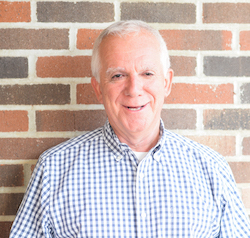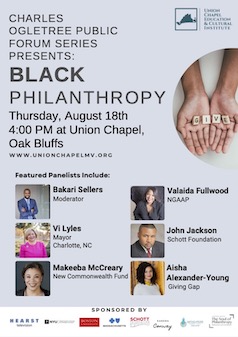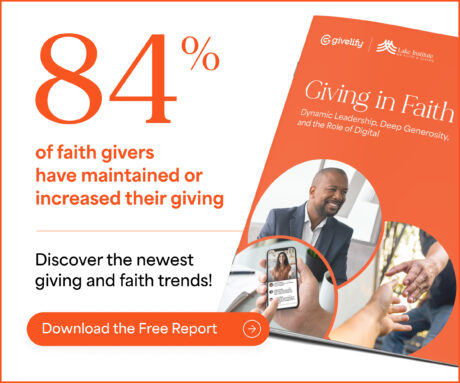Reflections on the Pandemic: Then and Now
Reflections on the Pandemic: Then and Now
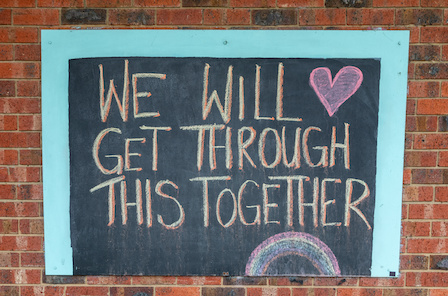 by JB Miller
by JB Miller
Sometimes, March 2020 feels like long ago. One day we were traveling and visiting with friends, then the next day the world seemed to stop. COVID, pandemic, N-95 masks and quarantine – these words became part of every conversation. Few of us could imagine what the next two years would bring.
A Pandemic from Then
The thought of a quarantine filled me with fear. My idea of a quarantine was shaped by stories I heard from my mother. She was five years old in 1918 when the flu epidemic hit the rural Ohio community where she lived. My grandparents were in their late 20’s with five children, ages eighteen months to ten years.
Word reached my grandmother that her parents were gravely ill, but a strict quarantine was in effect and no visitations were allowed. Nevertheless, my grandmother wanted to visit them. My grandfather said “no.” However, he finally relented when my grandmother promised to go and only look in the window. When my grandmother saw the horrible condition of her parents, she went inside to help them. After returning home, she soon fell ill and passed away five days later.
My mother seldom recounted this story, but I never forgot it. Now, as we faced our own quarantine, I wondered what would happen. Would I experience losses comparable to my mother’s? Maybe this crisis would bring people closer together and end the hostilities that seem to permeate our lives? What would happen to our congregation when services were suspended? Could anything good come from this pandemic?
A Pandemic Now
For many of us, it’s difficult to recount all the losses – the death of friends and family members whose passing was made more difficult by the lack of public services and ways to express our condolences. Closure is elusive.
Even with one million people in the US dying from COVID, the country seems more divided, and some family members don’t talk to each other anymore. The fraying and breaking of friendships over everything related to the pandemic has been, in many ways, more difficult to understand and accept. When some people made what I thought were bad decisions, being silent seemed the best approach. I remembered my grandmother who made what I consider a very bad decision.
There is much to lament, but as the pandemic continued, I began to discover I felt better when I focused on what was good. I saw there was much to be grateful for. The pandemic forced me to slow down. Travels, meetings, and activities were cancelled. My calendar was wiped clean.
Slowing Down & Reconnecting
What was I going to do now? How was I going to fill my days? Suddenly, I had time to tackle jobs I never had time for. I found I enjoyed what before I thought was drudgery. I began to slow down and the rhythm of life became more sustainable. At the height of the pandemic, my partner and I would put the top down on the convertible and go for a ride. When we had to run errands, we both went; otherwise, one of us could be at home for days on end. Slowing down drew us closer together.
Suddenly we became experts with Zoom, our social connector. While Zoom meetings and religious services became very tiring, Zoom turned out to be a tremendous gift to keep in touch with family and friends. Why did it take the pandemic for us enjoy cocktails and meals with friends halfway around the world? Friendships were strengthened, and we had time to connect. Thanks to the pandemic, our congregation quickly moved to online services that remain in place today, a huge benefit to our winter residents who stay connected while they’re away.
Reading became a favorite pastime again. Several friends formed a book club. The first book we read was The Ruthless Elimination of Hurry by John Mark Comer. We were in a pandemic with little on our schedules; did we really need a book about eliminating hurry? But even in a pandemic, there were things to learn. The best suggestion from Comer’s book was “reclaim your Sabbath.”
Reclaiming Sabbath
When I was young, Sunday was a day of rest. It included going to church, but the rest of the day was quiet. We read, played games, and relaxed. No one mowed the lawn, did laundry, or went shopping. But over the years, Sunday had just become another day. With all the busyness of the week, Sunday had become the perfect day to do the laundry, trim the shrubs, or wash the car.
Now that I’ve reclaimed the Sabbath, I try diligently to make it a day of rest. It’s church in the morning and the rest of the day is free. No work! I’ve even refused church-related committee meetings. I now look forward to Sunday, because the day is often a blank slate. On Sundays, there’s no need to check my calendar. Sunday is once again a day of rest.
Of course, I wish the pandemic had not occurred, but there’s much to be grateful for. The words of Thich Nhat Hanh, a Buddhist monk, provides perspective: “A true practitioner isn’t someone who doesn’t suffer, but someone who knows how to handle their suffering. We could say that the measure of our accomplishment or success is not that our life has no ups and downs, but that we can surf the waves!”
JB Miller helped shape Lake Institute on Faith & Giving as a member of the Advisory Board. J.B. holds a BS from Eastern Mennonite University and an MBA from Wake Forest University, and he has authored numerous articles focusing on the intersection of faith and work. He retired from Everence Financial a few years ago and now resides in Sarasota, FL.
Questions for Reflection
- We invite you to read this poem, Decisions by Boris Novak. This blog post from Seth Godin is a good read on decision-making as well!
- What decisions have you faced in the last few years? Are you able to see between two options and discover a third way? How does this poem connect with JB’s essay?
Expanded Perspective
Caring for each other in love
From health care access to food insecurity, increased mental health concerns to financial struggles, the COVID-19 pandemic created and exacerbated hardships for many across the United States – including congregations.
As churches across the United States paused onsite worship and activities – some for a few months, others for well over a year – the resulting COVID-related challenges became extraordinarily heavy for church personnel and attendees. Worship planning and decisions became overwhelming and confusing. Congregations experienced declines in participation and giving. Some made significant cuts to church operating budgets. Others had to reduce, layoff or furlough staff. And pastors across faith traditions experienced burnout and stress, as they carried the weight of pastoral care for their church attenders (not to mention themselves and their families).
As people of faith, we are called to bring life and hope to all of God’s people. But how were we supposed to serve each other and God, when we couldn’t carry out that call in our usual communion, together and in person?
Churches across the country adapted. They found new ways to fellowship, with streaming worship services and outdoor family activities. They brainstormed creative ways to sustain their church finances, by moving offerings online, creating congregational emergency financial plans, and applying for grants to tide them over. They reached out to their pastors, to make sure their pastoral leaders were also receiving care. And they extended mutual aid to one another, supporting those at risk or struggling in their midst.
Our faith communities provide personal connections, hope and peace. This has been true for generations, not just today. Perhaps, if anything, the pandemic reminded us that “church” has never been about our buildings. It’s about how we can be the hands and feet of God, caring for and serving each other in love.
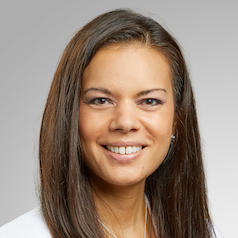 Madalyn Metzger, MBA, is the Vice President of Marketing and member of the Senior Leadership Team at Everence Financial®, a national financial services organization that helps individuals, organizations and churches integrate their faith and values with their financial decisions. A frequent public speaker and writer, Madalyn also teaches graduate and undergraduate courses in strategic marketing for The Collaborative MBA and Eastern Mennonite University. She is a member of the Manchester University Board of Trustees, and currently serves as the moderator-elect for the Church of the Brethren.
Madalyn Metzger, MBA, is the Vice President of Marketing and member of the Senior Leadership Team at Everence Financial®, a national financial services organization that helps individuals, organizations and churches integrate their faith and values with their financial decisions. A frequent public speaker and writer, Madalyn also teaches graduate and undergraduate courses in strategic marketing for The Collaborative MBA and Eastern Mennonite University. She is a member of the Manchester University Board of Trustees, and currently serves as the moderator-elect for the Church of the Brethren.
Black Philanthropy
Join Valaida Fullwood and this esteemed panel as they discuss Black Philanthropy as part of the Charles Ogletree Public Forum Series on Thursday, August 18th at 4:00 pm Eastern. Fullwood, who served as a Lake Institute Distinguished Visitor in 2014, is Co-Founder of New Generation of African American Philanthropists (NGAAP) and Co-Architect of Black Philanthropy Month, which takes place annually in August. Advance registration is not required. Tune into Union Chapel’s website, Facebook page or YouTube for the livestream.
2022 Giving in Faith
Givelify partnered with Lake Institute on Faith & Giving to gain a better understanding of how individuals and congregations navigated the ongoing pandemic. Together, we heard from 524 faith leaders and 852 faith givers who shared their experiences on community, giving, and worship. While much recent research focuses on the impact of the pandemic on congregations, this study sheds light on the ways in which individual giving and gathering behaviors changed throughout 2021. It also highlights the key factors that individuals consider when making decisions about attendance, gathering, and giving.
Subscribe
Insights, a bi-weekly e-newsletter, is a resource for the religious community and fundraisers of faith-based organizations that provides:
- Reflections on important developments in the field of faith and giving
- Recommended books, studies and articles
- Upcoming Lake Institute events

